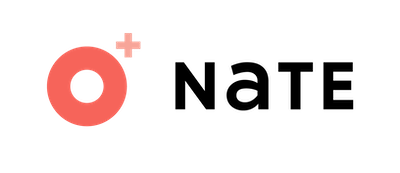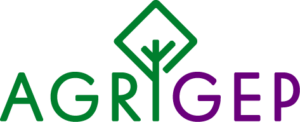Mit érdemes tudni a projektről?
A Nők a Tudományban Egyesület (NaTE) a Magyar Agrár- és Élettudományi Egyetem (MATE) koordinálásával az újonnan indult Horizont Európa projekt AGRIGEP projektjének partnere.
AGRIGEP – 101094158 (2023-2025): Assessment and Implementation of Agriculture and Life Science Universities’ first Gender Equality Plans in widening countries
Konzorciumvezető:
Magyar Agrár-és Élettudományi Egyetem (MATE)
Partnerek:
- Czech University of Life Sciences (Česká zemědělská univerzita v Praze) (CZU)
- University of Primorska (Univerza na Primorskem – Universita del Litorale) (UP)
- Universitat Politecnica de Catalunya BarcelonaTech (Universitat Politècnica de Catalunya • BarcelonaTech) (UPC)
- Yellow Window (YW)
- Association of Hungarian Women in Science (Nők a Tudományban Egyesület) (NaTE)
Résztvevők a NaTE részéről:
Paksi Veronika (projektvezető), Társadalomtudományi Kutatóközpont
Tardos Katalin (résztvevő kutató), Társadalomtudományi Kutatóközpont
A projektről
A nemek közötti egyenlőtlenség jelentősen korlátozza a kutatási és oktatási intézmények képességeit és kapacitásait a Kutatás-Fejlesztés (K+F) területén. Az EU a K+F-intézményekben kötelezően kidolgozandó nemek közötti egyenlőségi tervek (GEP) bevezetésével célozza meg a problémát, azonban az eltérő képességek, kapacitások és szakértelem akadályozza a hatékony végrehajtást. A természettudományos, technológiai, mérnöki és matematikai (STEM) területeken a nemek közötti egyenlőtlenségekkel kapcsolatos problémák fokozottan jelentkezhetnek, amelyre már léteznek konkrét cselekvési tervek. Ugyanakkor a STEM területek sem homogének, a mezőgazdaság és az élettudományok területén az intézmények nagyon hasonló problémákkal szembesülnek, azonban hiányoznak az ágazatspecifikus intézkedések, a probléma megoldását célzó tervek. Továbbá a mezőgazdaság tudományterületén számos egyetemi hallgató érkezik olyan fejlődő országokból az EU kutatási-oktatási intézményeibe, ahol kifejezetten nagy az ágazatspecifikus egyenlőtlenség a nemek között.
Ezért az AGRIGEP projekt a következő célokat tűzte ki:
- A nemek közötti egyenlőségi terveiket (GEP) első alkalommal végrehajtó partnerintézmények képességeinek felmérése, valamint az erősségek és gyengeségek, kockázatok és lehetőségek azonosítása (az egyetemek GEP-hez kapcsolódó értékelése)
- A képességek növelése kapacitásépítéssel, valamint a GEP-ek hatékony végrehajtásához szükséges reformok és strukturális változások előmozdítása (képzési anyagok az intézmények oktatói, kutatói, alkalmazottai és hallgatói számára).
- Ágazatspecifikus (mezőgazdaság és élettudomány) értékelés elvégzése, a GEP-stratégiák felülvizsgálata és aktualizálása az ágazati igények alapján, valamint az ágazatspecifikus releváns intézkedések meghatározása (kutatási partnerintézményekre szabott GEP-ek).
- A szakemberek következő generációja számára releváns ismeretek nyújtása a mezőgazdasággal és az élettudományokkal kapcsolatos GEP-kérdésekről, különös tekintettel a nemzetközi hallgatókra (kutatási partnerintézmények tanterveihez igazított képzési anyagok)
- Hosszú távú intézményi reformok, az intézményi GEP-ek hosszú távú végrehajtásának és hatásának biztosítása a projekt élettartamán túl, strukturális változások révén (ágazati GEP tudásmegosztó hálózat)
- A nemek közötti egyenlőség témája bekerüljön a regionális politikai szervezetek oktatási rendszerébe és a diákok szakmai képzésébe; növelje a kutatási partnerintézmények inkluzivitását, hírnevét, vonzerejét és kutatási kiválóságát; elősegítse az intézményi átalakulást, elősegítse a nemek esélyegyenlőségét az Európai Kutatási Térségen belül.
Hírek az AGRIGEP projektről
Mi történt eddig a projektben? Ismerd meg a konzorcium tagjait! Közelgő események az AGRIGEP projekt keretein belül.
Minden infót megtudhatsz hírleveleinkből.
Nők a Tudományban Kiválósági Díj Magyarországon
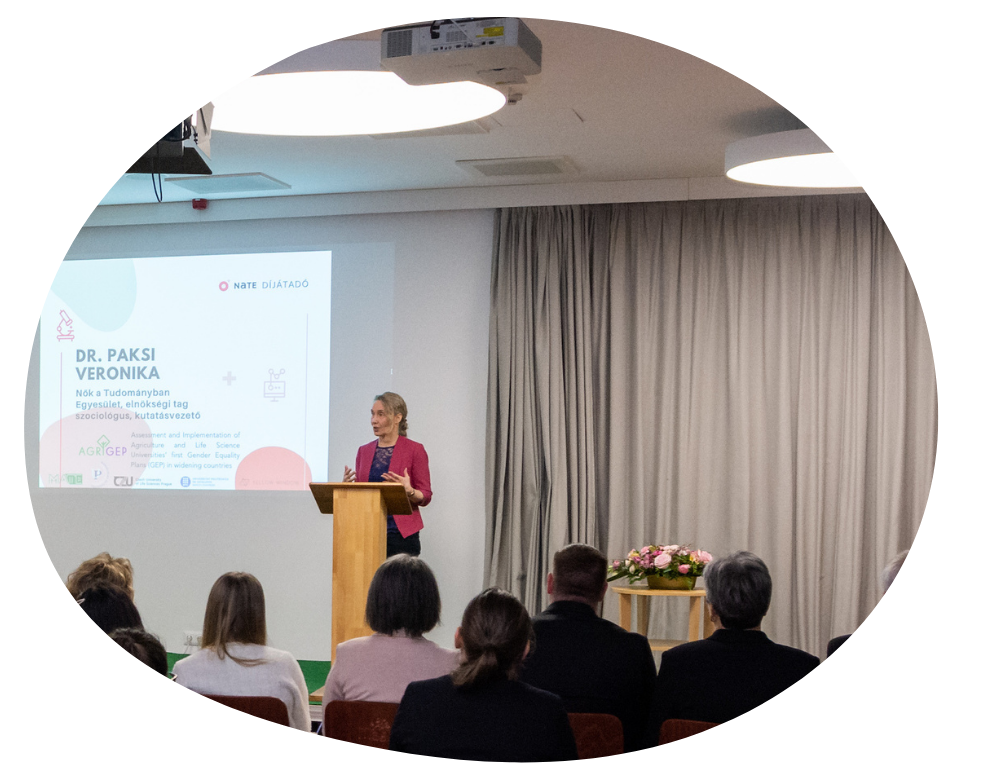
- 2024-ben a Nők a Tudományban Kiválósági Díjat a nőnaphoz kötődően tizenegyedik alkalommal adhattuk át, a szakterületükön legkiválóbb kutatónők munkásságát az UNESCO Magyar Nemzeti Bizottsága védnökségével díjaztuk..
- A Kíválósági Díj idei díjazottai a daganatos sejteket és a klímaváltozást kutatják – a jövő generációját inspiráló példaképek.
- Nők a Tudományban Kiválósági Díjjal ismertük el Dr. Lengyel Edina és Dr. Munkácsy Gyöngyi munkásságát, kiemelkedő tudományos teljesítményük, valamint a jövő kutatói generációját érintő mentorálási tevékenységük elismeréseként. A kutatói tevékenység támogatásáért munkatársai jelölése alapján Kiválósági Díjat adományoztunk Kohajda Mónikának, a Szegedi Tudományegyetem Bőrgyógyászati és Allergológiai Klinika laborasszisztensének.
- Az eseményen bemutattuk az AGRIGEP projektet Paksi Veronika tolmácsolásában, aki a NaTE elnökségi tagja és az AGRIGEP csapatát is erősíti.
Előadás az AGRIGEP-ről
A HUN-REN TTK Esélyegyenlőségi Bizottságának szervezésében 2024. május 23-án tartott előadást Paksi Veronika elnökségi tagunk a nők tudományos szakmai előmenetelének témájában, amely a NaTE AGRIGEP projektjének gondolatiságába illeszkedik.
Az előadás különös figyelmet szentelt a nemek közötti egyenlőség fontosságának kiemelve ezt a tudományos pályán, illetve a nemek közötti egyenlőségi tervek (GEP) kidolgozását és végrehajtását olyan kutatási- és oktatási intézményekben, mint a HUN-REN TTK. Az előadást kerekasztal-beszélgetés követett a HUN-REN TTK-ban vezető pozíciót betöltő kutatónőkkel.
Miért fontos a nők tudományos előmenetele?
Az egyenlő esélyek biztosítása növeli a tudományos kutatások sokszínűségét és minőségét, a GEP-ek bevezetése pedig egy komoly szervezetfejlesztés, amit a felső vezetésnek mérlegelnie javasolt. A nők jelenléte a tudományos életben olyan perspektívákat hoz be, amely gazdagítja a kutatásokat, és innovatív megoldásokat eredményezhetnek. Emellett a női kutatók szerepmodellként szolgálhatnak a fiatalabb generációk számára, bátorítva őket a tudományos pálya választására. A NaTE az AGRIGEP projekt részeként is elkötelezett amellett, hogy elősegítse a nők tudományos karrierjét.
AGRIGEP summer school
AGRIGEP Nyári Találkozó 2024 – Együtt a Nemek Közötti Egyenlőségért
Júniusban az Escola Tècnica Superior d’Enginyeria Industrial de Barcelona (ETSEIB – UPC) adott otthont az AGRIGEP projekt nyári találkozójának, ahol a NaTE kutatói és szakemberei is képviseltették magukat.
„A Horizon Europe AGRIGEP projekt nyári iskoláját rendeztük meg a Barcelonai Műszaki Egyetemen. Több mint 20 résztvevő érkezett különböző országokból, köztük Szlovéniából, Magyarországról, Csehországból és Belgiumból. Az esemény rendkívül gazdagító volt. Számos beszélgetés, érdekes vita és workshop során design thinking technikákat alkalmaztunk a nemek közötti egyenlőség kérdéseinek megoldására az egyetemi intézményekben. Különösen érdekes volt látni, hogy az archetípusokat, használati eseteket és empátiatérképeket hogyan alkalmaztuk az egyenlőség kontextusában. Az itt töltött napok megerősítették elkötelezettségünket egy méltányosabb akadémiai környezet megteremtése iránt!”
Dr. Rosó Baltà Salvador (UPC)
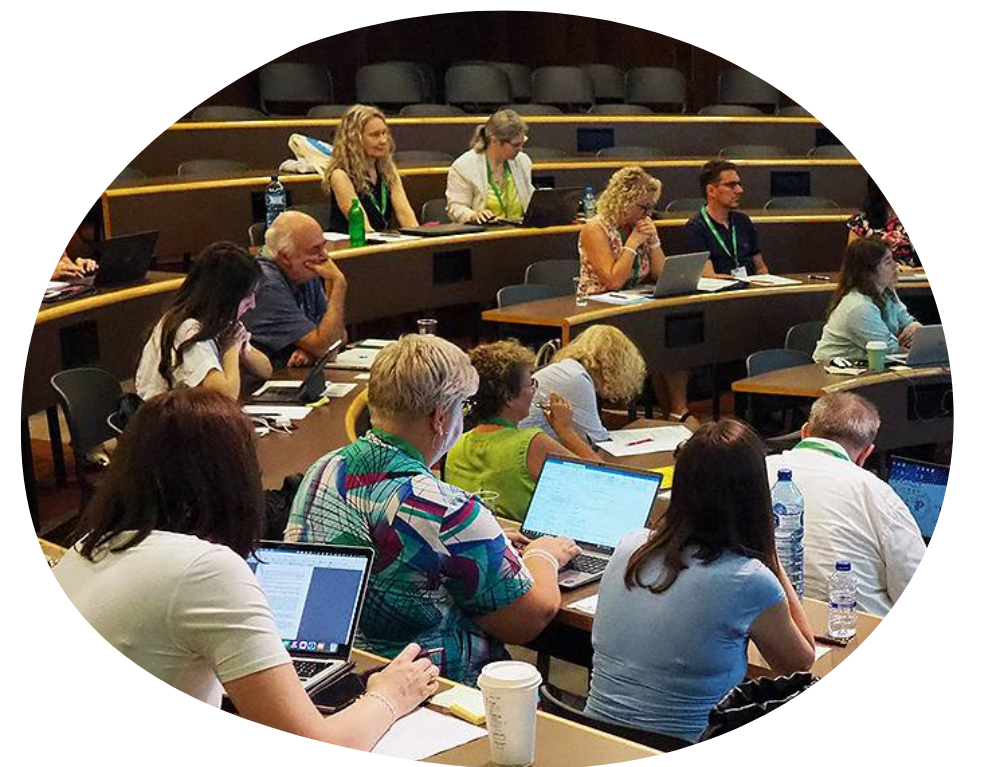
Nők a tudományban: Tudományos pálya és gyermekvállalás
2024. november 6-án a Magyar Tudomány Ünnepe keretében megrendezésre került esemény lebilincselő bepillantást nyújtott a kutatónők előtt álló kihívásokba és lehetőségekbe. A program a tudományos karrier és a szülői szerepek összehangolásának kérdéseit állította a középpontba, és különféle nézőpontokat hozott össze egy inspiráló diskurzus keretében.
Az esemény egyik kiemelkedő pontja Paksi Veronika és Tardos Katalin előadása volt, akik az AGRIGEP projekt legújabb eredményeit ismertették. Az előadásban hangsúlyozták, milyen fontos a tudományos karrier és a szülői szerepek összeegyeztetése, valamint bemutatták, hogyan járulhat hozzá mindez a nemek közötti egyenlőséghez, az intézmények versenyképességéhez és a kutatási kiválósághoz. A közönség betekintést nyerhetett statisztikai elemzésekbe, történeti áttekintésekbe és ágazatspecifikus vizsgálatokba. Az előadások külön figyelmet fordítottak a fiatal kutatónők helyzetére és a határon túli kutatói pályák sajátosságaira, inspiráló példákat állítva a hallgatóság elé.
A program egy élénk kerekasztal-beszélgetéssel zárult, amely ösztönző párbeszédet indított el a résztvevők között. Az esemény ismét rávilágított arra, mennyire fontos a téma további kutatása és a megoldások keresése az akadémiai szféra számára.

Nemi sztereotípiák lebontása – Konferencia az Emberi Jogok Világnapján
A nemi alapú sztereotípiák és elvárások a nők hátrányos megkülönböztetéséhez vezetnek, legyen szó a magánéletről, az oktatásról vagy a munkaerőpiacról. Ennek a problémának a kezelése közös felelősség, amelyben az oktatásnak kiemelt szerepe van.
Az Emberi Jogok Világnapjára szervezett konferenciánk fókuszában azok az oktatási eszközök álltak, amelyek segítenek a fiatalokkal foglalkozó szakembereknek – pedagógusoknak, szociális segítőknek, iskolapszichológusoknak – a nemi sztereotípiák lebontásában, illetve a diszkrimináció megelőzésében és felszámolásában.
Az eseményen bemutattuk a „Szabad a pálya” projekt eredményeit, valamint azokat az innovatív oktatási eszközöket, amelyek célja a nemi alapú megkülönböztetés elleni küzdelem. A program egyik csúcspontja a kerekasztal-beszélgetés volt, ahol szakértők és gyakorlati szakemberek osztották meg tapasztalataikat és ötleteiket az egyenlőség és befogadás előmozdításáról.
A konferencia egy kötetlen beszélgetéssel zárult, amely lehetőséget biztosított a résztvevők számára a kapcsolatteremtésre és az ötletek megosztására. Az esemény mindenki számára hozzáférhető volt: online közvetítést és jelnyelvi tolmácsolást biztosítottunk.
A rendezvény a „Szabad a pálya” projekt záróeseménye volt, amelyet az Amnesty International Magyarország, a Nők a Tudományban Egyesület (NaTE) és az Emberség Erejével Alapítvány az Európai Unió társfinanszírozásával valósított meg.

Mentorálás és tudásmegosztás a nemek közötti egyenlőségért a tudomány világában
A 2025 . január 14-15-én megvalósult AGRIGEP mentorprogram célja az volt, hogy elősegítse a nemek közötti egyenlőség integrálását az akadémiai intézmények működésébe, valamint támogatást nyújtson a részt vevő egyetemek számára saját esélyegyenlőségi stratégiáik fejlesztésében.
A NaTE-t Paksi Veronika és Tardos Katalin képviselte. Az egyetemek vezetőivel, esélyegyenlőségi szakértőkkel és nemzetközi mentorokkal osztották meg tapasztalataikat, és aktívan hozzájárultak a nemek közötti egyenlőségre vonatkozó jó gyakorlatok megvitatásához.
A találkozó egyik kiemelt témája a 7P Keretrendszer volt, amely a UniSAFE projekt keretében született meg. A keretrendszer gyakorlati eszközöket kínál az egyetemek számára a nemi alapú erőszak megelőzésére és kezelésére, valamint a támogató, befogadó környezet kialakítására. Az eseményen szó esett az AGRIGEP projektben részt vevő MATE nemek közötti egyenlőségi tervének (GEP) megvalósításáról is, különös tekintettel az adatalapú monitoring rendszerre és az interszekcionális adatelemzésre.
A második napon a résztvevők megismerkedhettek a gender és klímaváltozás témakörével egy előadás keretében, majd egy interaktív workshop során gyakorlati példákon keresztül tanulmányozták, hogyan lehet a gender dimenziót beépíteni a kutatási projektekbe.
Az AGRIGEP mentorprogram remek alkalmat nyújtott arra, hogy az intézmények közötti együttműködés révén tovább erősítsük a nemek közötti egyenlőség megvalósítását célzó törekvéseket. A szakmai tapasztalatcsere során új ötletek és megoldások születtek, amelyek hozzájárulnak az akadémiai világ méltányosabbá és befogadóbbá tételéhez.
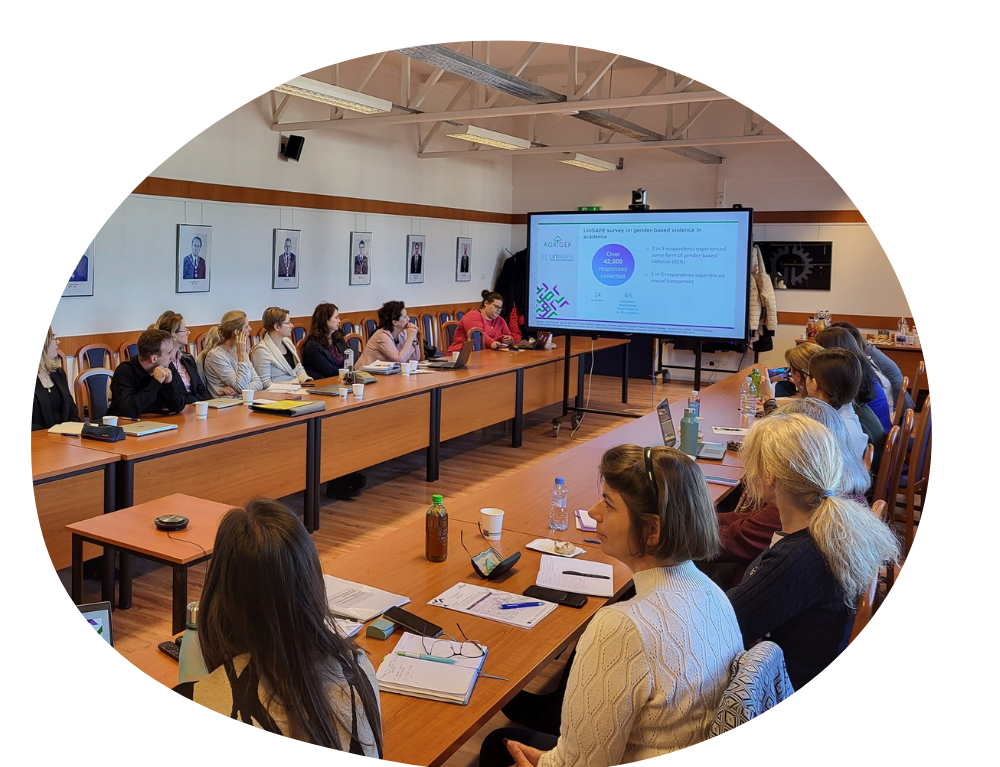
Az AGRIGEP projekt bemutatkozása a HUN-REN TK rendezvényén
Paksi Veronika bemutatta az Agrigep projektet, illetve Tardos Katalinnal és Takács Judittal közösen előadást tartott ‘Lecture on ‘Gender Equality Barriers in Agriculture and Life Sciences in Central European Universities’ címmel a HUN-REN Társadalomtudományi Központ Szociológiai Intézet belső rendezvényén. A rendezvényen számos társadalmi nemek szakértő vett részt. Az előadást a két felkért bíráló – Virágh Enikő, ELTE és Albert Fruzsina (HUN-REN TK Szociológiai Intézet) jelenlétében vitatták meg, ami értékes hozzájárulást jelentett az AGRIGEP projekt számára.

Gender Equality, Equity and Inclusivity in Academia – Koper
Tardos Katalin, Virágh Enikő és Paksi Veronika előadást tartott Koperben az Agrigep projekt éves találkozóját követően, a ‘Second Symposium on Gender Equality for an Inclusive University and Society: Gender Equality, Equity and Inclusivity in Academia’ c. rendezvényen a szlovéniai Primorskai Egyetemen. Az immáron második alkalommal rendezett szimpóziumon számos szakértő és kutató találkozott a társadalomtudományok, a humán tudományok és az oktatástudományok területéről, akik a nemek közötti egyenlőséggel, befogadó akadémiai gyakorlatokkal foglalkoznak. A szimpózium a nemek közötti egyenlőséggel kapcsolatos legfontosabb kihívásokra, valamint az akadémiai életben tapasztalható egyenlőtlenségek hatékony megoldásainak megtalálására összpontosított.
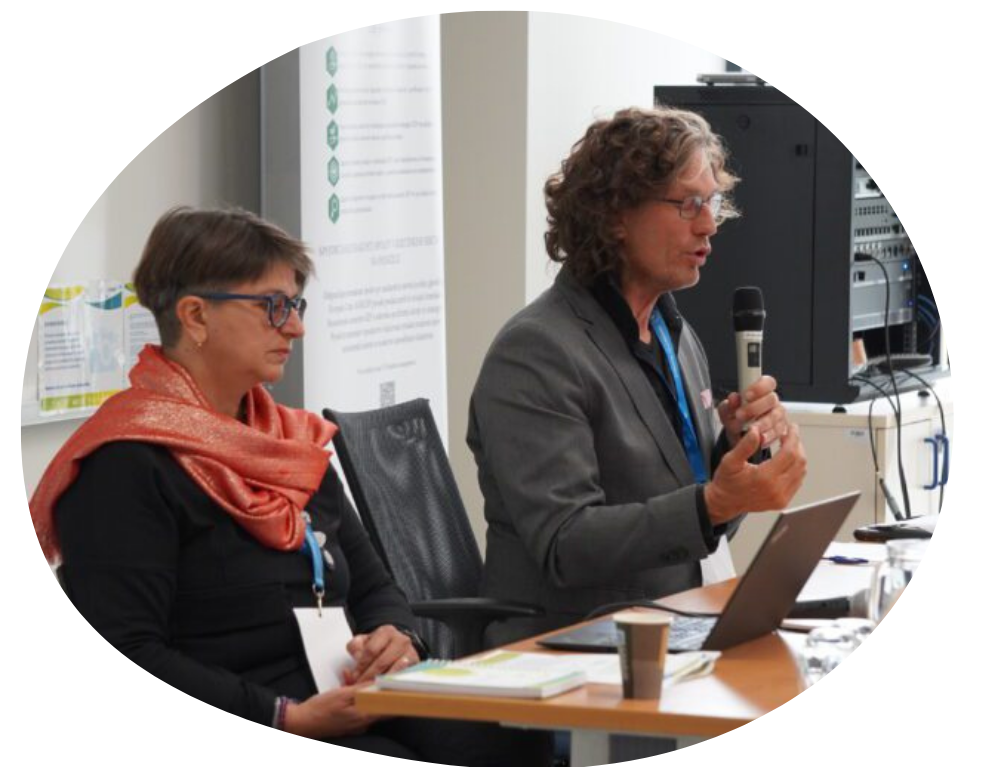
Nők a Tudományban Kiválósági Díj
2025. április 14-én a NaTE tizenharmadszor adta át a Nők a Tudományban Kiválósági díjat díjakat. A díj nemcsak kiemelkedő tudományos teljesítményeket ismeri el, hanem azokat is, akik jelenlétükkel, nyitottságukkal és azzal, hogy a tudományt közérthető módon kommunikálják, inspirálnak másokat.
Az idei díjazottak a tudományos szerepek széles skáláját képviselik:
A Matematika, informatika tudományterületen Dr. Anna Gelencsér-Horváth, a Pázmány Péter Katolikus Egyetem Információtechnológiai és Bionika Karának adjunktusa, kapta az elismerést, aki a mesterséges intelligencia és a gépi látás területén olyan algoritmusokat tervez és fejleszt, amelyek a vakok és gyengénlátók mindennapi életét segítő technológiai megoldások alapjául szolgálnak.
A kiváló kutatói teljesítményhez nemcsak biztos és támogató családi háttérre van szükség, hanem a mindennapi munkát segítő technikusokra, laboránsokra, asszisztensekre és szakmai segítőkre is. A kutatói tevékenység támogatásáért munkatársai jelölése alapján a NaTE Kiválósági Díjat adományozott Szeidl Antalné Lariszának, a HUN-REN Agrártudományi Kutatóközpont intézeti mérnökének, aki a Kalászos Gabona Nemesítési Osztályon 33 éve vizsgálja a kalászos gabonák technológiai minőségét és végzi a szántóföldi kisparcellás búzakísérletek agronómiai értékelését.
Az idei díjátadó mérföldkő volt, Lányok Napja Tanári Díjat először vehetett át öt pedagógus. akik a legtöbbet tették azért, hogy minél több fiatal lány jusson el a Lányok Napjára, ezzel is segítve őket szabad és bátor döntéseket hozni pályaválasztásuk során.
A NaTE az AGRIGEP és STREAM IT projektek konzorciumi partnereként is elkötelezett amellett, hogy a tudományos karrierutak elérhetőbbé váljanak a lányok és nők számára. A Nők a Tudományban Kiválósági Díj nemcsak elismerést jelent, hanem hatékony eszközt kínál a női példaképek láthatóságának növelésére és a diverzitás előmozdítására a tudományos közösségen belül.
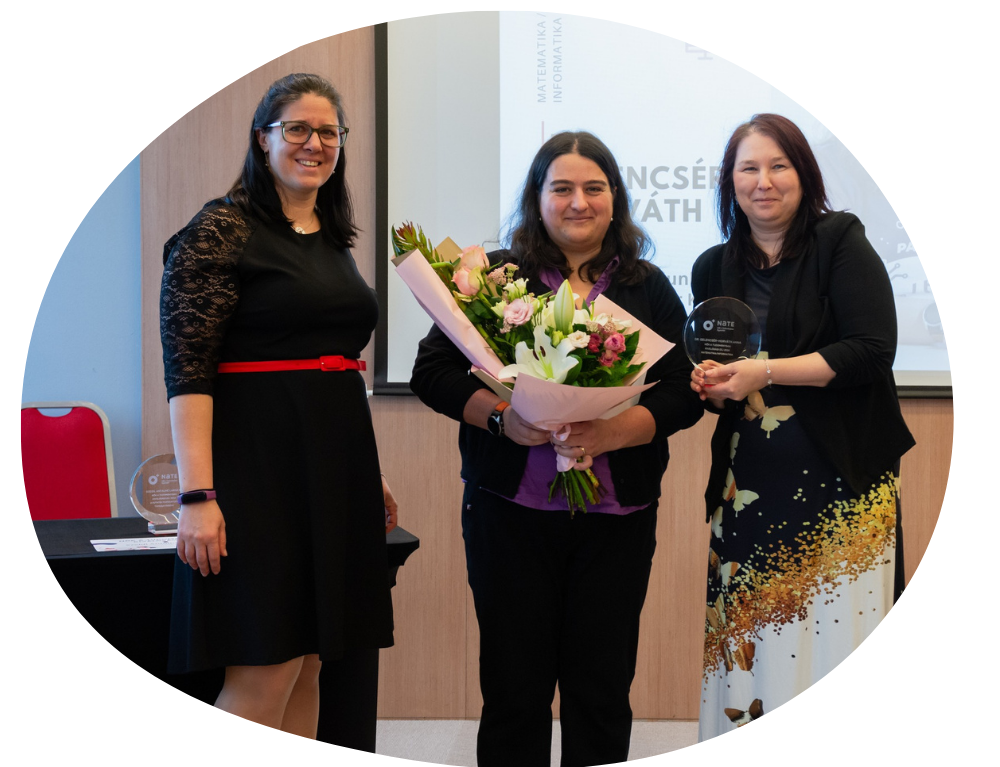
Zárókonferencia Prágában – véget ér az AGRIGEP projekt
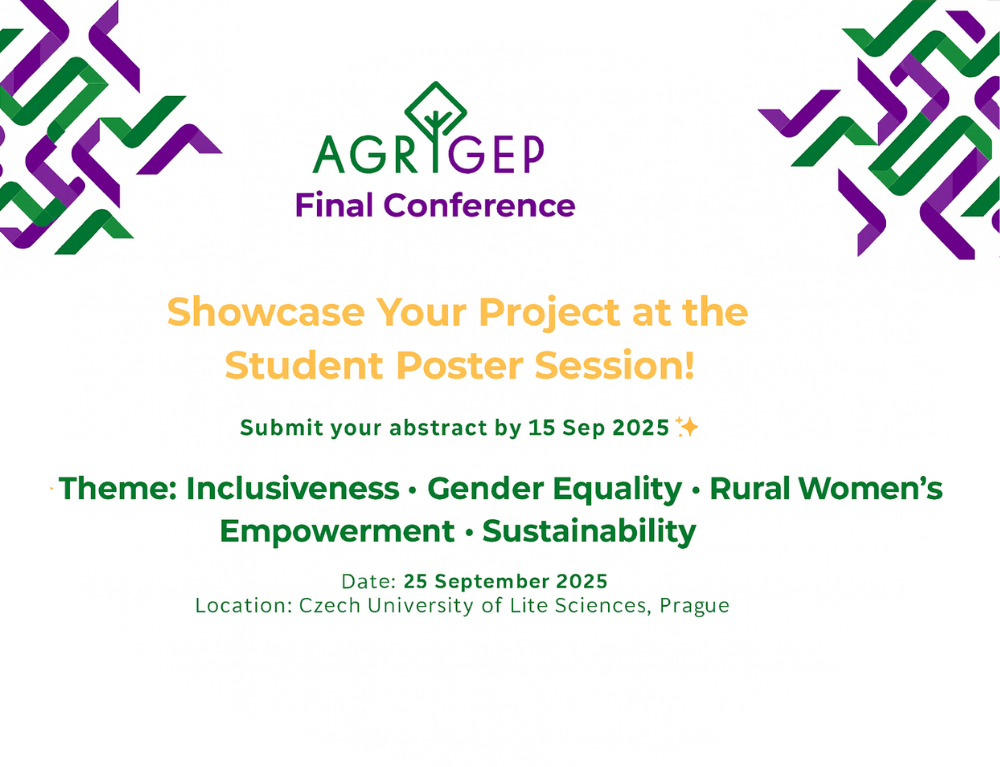
2025. szeptember 25-én Prágában kerül sor az AGRIGEP projekt zárókonferenciájára, amely lezárása lesz annak a hároméves munkának, amely a nemek közötti egyenlőségi tervek (Gender Equality Plans) bevezetését és megerősítését célozta a mezőgazdasági és élettudományi egyetemeken Közép- és Kelet-Európában. A konferencia célja, hogy bemutassa a projekt eredményeit, összegzi a kutatások és kísérleti programok tapasztalatait, és előretekintve javaslatokat fogalmaz meg a fenntartható intézményi változások előmozdítására.
Mi volt az AGRIGEP Projekt?
Az AGRIGEP (Rooting Sustainable Change: Inclusive Gender Equality Plans in Agriculture and Life Sciences Universities in Central and Eastern Europe) projekt az Európai Unió támogatásával valósult meg. Kiemelt célja az volt, hogy a felsőoktatási intézményekben olyan befogadó és hosszú távon fenntartható eszközöket alakítson ki, amelyek elősegítik a nők, különösen a vidéki nők részvételét és megerősítését a tudományos pályán. A projekt során a partnerintézmények nemcsak szakpolitikai szinten dolgoztak ki új megközelítéseket, hanem helyi, alulról jövő kezdeményezéseket is támogattak, amelyek a mindennapi akadémiai működésben hozhatnak valódi változásokat.
A NaTE szerepe
A NaTE kiemelt partnerként vett részt a projektben, és feladatai közé tartozott: a nemek közötti egyenlőség és befogadás témájának népszerűsítése, jó gyakorlatok összegyűjtése és megosztása, a hazai és nemzetközi hálózatok összekapcsolása, valamint a fiatal kutatók és hallgatók bevonása a projekt eseményeibe és kutatásaiba.
A NaTE nemcsak szakmai tudásával, hanem aktív közösségépítő szerepével is hozzájárult ahhoz, hogy a projekt eredményei szélesebb körben is ismertté váljanak.
Magyar előadó a konferencián
A prágai konferencián a NaTE képviseletében Paksi Veronika, a Társadalomtudományi Kutatóközpont tudományos munkatársa tart előadást. Előadása különösen a mezőgazdasági és élettudományi területeken tapasztalható esélyegyenlőségi kihívásokra és lehetőségekre fókuszál.
Ez nagy lehetőség arra, hogy a magyar szakmai közösség is láthatóan hozzájáruljon a nemzetközi párbeszédhez, és a közép-európai tapasztalatok beépüljenek az európai szintű szakpolitikai ajánlásokba.
Előretekintés
Bár az AGRIGEP projekt hivatalosan lezárul, a munka nem ér véget: a megszületett tapasztalatok és tudásanyag hosszú távon is irányt mutatnak a felsőoktatási intézményeknek. A cél, hogy a nemek közötti egyenlőség valóban beépüljön az egyetemi élet mindennapjaiba, és ezáltal erősítse az innovációt, a versenyképességet és a tudományos kiválóságot.
Ha szeretnél értesülni a projekt tevékenységeiről, eredményeiről és eseményeiről, iratkozz fel hírlevelünkre! Légy naprakész!
About the project
Association of Hungarian Women in Science (NaTE) is a partner in the newly launched Horizon Europe project AGRIGEP under the coordination of the Hungarian University of Agriculture and Life Sciences (MATE).
AGRIGEP – 101094158 (2023-2025): Assessment and Implementation of Agriculture and Life Science Universities’ first Gender Equality Plans in widening countries
Head of consortium:
Hungarian University of Agriculture and Life Sciences (MATE)
Partners:
- Czech University of Life Sciences (Česká zemědělská univerzita v Praze) (CZU)
- University of Primorska (Univerza na Primorskem – Universita del Litorale) (UP)
- Universitat Politecnica de Catalunya BarcelonaTech (Universitat Politècnica de Catalunya • BarcelonaTech) (UPC)
- Yellow Window (YW)
- Association of Hungarian Women in Science (Nők a Tudományban Egyesület) (NaTE)
Participants on behalf of NaTE:
Paksi Veronika (project leader), Institute for Sociology, Centre for Social Sciences
Tardos Katalin (participant researcher), Institute for Sociology, Centre for Social Sciences)
The project
Gender inequality is a major barrier in the R&I area that limit the capabilities and capacities of research performing institutions (RPOs). Across the EU, the development of Gender Equality Plans (GEP) intends to address the problems at RPOs; however, the variability in capability, capacity, and expertise hinder the efficient implementation of the institutional GEPs. GE issues in the Science, Technology, Engineering and Mathematics (STEM) fields are well known and specific action plans have been developed. Meanwhile, STEM fields are also not homogenous, and within STEM, agriculture and life-science focused RPOs face very similar problems, but they lack sector-specific measures and mitigation plans. Furthermore, in the field of agriculture, many university students come to EU research and education institutions from developing countries where there is a marked sector-specific gender imbalance.
Therefore, the AGRIGEP project aims to:
- Assess the capabilities of the partner institutions implementing their Gender Equality Plans (GEPs) for the first time and identify strengths and weaknesses, risks and possibilities (GEP-related assessment of universities)
- Increase capabilities through capacity building, and promote reforms and structural changes for the efficient implementation of GEPs (training materials for institutions’ staff, employees, and students).
- Perform a sector-specific assessment, revise and update GEP strategies based on the sectorial needs, and determine sector-specific relevant measures (tailor-made GEPs to each research partner organisation).
- Provide relevant knowledge on GEP issues in relation to agriculture and life science to the next generation of professionals, with a specific focus on international students (training materials implemented to research partner organisation curricula).
- Achieve long-term institutional reforms by ensuring the long-term implementation and impact of institutional GEPs beyond the project lifetime through structural changes (sectoral GEP knowledge sharing network).
- Establish the inclusion of GE issues within the RPOs’ educational system and professional training of students;, enhance the inclusiveness, reputation, attractiveness, and research excellence of widening country RPOs; promote the transformation of institutions and advance GE within the ERA as well.
AGRIGEP project news
What has happened so far in the project? Meet the consortium members! Upcoming events within the AGRIGEP project.
You can find all the information in our newsletters.
Women in Science Award of Excellence in Hungary

- In 2024, the Women in Science Award of Excellence was presented for the eleventh time on the occasion of the International Women’s Day, to honour the most outstanding women researchers in their field, under the auspices of the Hungarian National Commission for UNESCO.
- This year’s winners of the Award of Excellence are researching cancer cells and climate change – are role models who are inspiring the next generation.
- The Women in Science Award of Excellence was presented to Edina Lengyel, PhD and Gyöngyi Munkácsy, PhD in recognition of their outstanding scientific achievements and their mentoring of the next generation of researchers. Based on the nominations of her colleagues, we awarded the Award of Excellence to Mónika Kohajda, a laboratory assistant of the Department of Dermatology and Allergology, at the University of Szeged, for her support of the researchers’ activities.
- The AGRIGEP project was introduced by Veronika Paksi, who is board member of the Association of Hungarian Women in Science and member of the AGRIGEP team.
Presentation about the AGRIGEP
On 23 May 2024, our board member Veronika Paksi gave a lecture on the topic of women’s career advancement in science, organised by the Committee for Equal Opportunities of the HUN-REN TTK, which fits into the idea of the NaTE AGRIGEP project.
The presentation focused in particular on the importance of gender equality, especially in the academic field, and highlighted the development and implementation of Gender Equality Plans (GEPs) in research and educational institutions such as HUN-REN TTK. The presentation was followed by a round table discussion with senior women researchers at HUN-REN TTK.
Why is it important women’s academic career advancement?
Providing a more equitable environment will increase the diversity and quality of scientific research, and the introduction of GEPs is a major organisational development that senior management should consider. The presence of women in science brings perspectives which enrich the research and can result in innovative solutions. In addition, women researchers can serve as a role model for younger generations, by encouraging them to choose a career in science. NaTE is committed to promoting women’s careers in science even as part of the AGRIGEP project.
AGRIGEP summer school
AGRIGEP Summer Meeting at the UPC – Together for Gender Equality
In June 2024, the Escola Tècnica Superior d’Enginyeria Industrial de Barcelona (ETSEIB – UPC) hosted the AGRIGEP project summer meeting, where researchers and professionals from NaTE were represented.
„This week, we hosted the Summer School of the Horizon Europe project AGRIGEP at the Universitat Politècnica de Catalunya. More than 20 participants from various countries attended the event, including Slovenia, Hungary, the Czech Republic, and Belgium. The gathering proved to be incredibly enriching. We engaged in various talks, interesting discussions, and workshops that utilized design thinking techniques to address gender equality issues within university institutions. It was particularly fascinating to see tools like archetypes, use cases, and empathy maps applied in the context of equality. This week’s sessions have reinforced our commitment to creating a more equitable academic environment!”
Dr Rosó Baltà Salvador (UPC) summarized her experience from the meeting.

Women in Science: Academic Careers and Motherhood
The event, held on 6 November 2024 in the framework of the Hungarian Science Festival, provided a deeply engaging exploration of the challenges and opportunities faced by women researchers. The program focused on balancing academic careers and parenthood, bringing together different perspectives in an inspiring discussion.
One of the highlights of the event was the presentation by Veronika Paksi and Katalin Tardos, who shared fresh findings from the AGRIGEP project. This initiative focuses on creating gender equality plans tailored to the specific challenges of agricultural and life sciences institutions. Their research emphasized the importance of reconciling scientific careers with parental roles and showcased strategies to strengthen gender equality, boost institutional competitiveness, and advance research excellence.
The audience gained valuable insights through statistical analyses, historical overviews, and sector-specific studies. The discussions also highlighted the unique experiences of female researchers, particularly young scientists and those working abroad, offering an inspiring vision for how academic careers can adapt to support gender equity.

Breaking Gender Stereotypes – A Conference on Human Rights Day
Gender-based stereotypes and expectations continue to lead to discrimination against women in private life, education, and the labor market. Addressing this issue requires collective effort and effective tools, especially in education.
Our Conference focused on educational resources designed to help professionals working with youth—teachers, social workers, and school psychologists—break down gender stereotypes and prevent or eliminate discrimination.
The event included a presentation of the outcomes of the „Szabad a pálya” (Free to Choose) project, showcasing innovative educational tools developed to combat gender-based discrimination. A highlight of the program was the roundtable discussion, where experts and practitioners shared insights on how to promote equality and inclusivity in various contexts.
The conference concluded with an informal gathering, offering attendees the chance to network and exchange ideas in a relaxed atmosphere. To ensure accessibility, the event was live-streamed, and sign language interpretation was provided, creating an inclusive space for all participants.
The conference marked the closing event of the „Szabad a pálya” project, implemented by Amnesty International Hungary, the Association for Women in Science (NaTE), and the Emberség Erejével Foundation, with co-funding from the European Union.

Mentoring and knowledge sharing for gender equality in science
The AGRIGEP mentoring visit, which took place from 14-15 January 2025, aimed to promote the integration of gender equality in the functioning of academic institutions and to support participating universities in developing their own gender equality strategies.
The NaTE was represented by Veronika Paksi and Katalin Tardos. They shared their experiences with university leaders, gender equality experts and international mentors and actively engaged in the discussion of good practices on gender equality.
A key topic of the meeting was the 7P Framework, developed within the UniSAFE project. This framework provides practical tools for universities to prevent and address gender-based violence while creating a supportive and inclusive environment. The event also featured discussions on the implementation of MATE’s Gender Equality Plan (GEP), focusing on data monitoring systems and intersectional data analysis.
The second day included a lecture on Gender and Climate Change, followed by an interactive workshop that explored practical ways to integrate the gender dimension into research projects.
The AGRIGEP mentoring visit offered an excellent opportunity for institutions to collaborate and strengthen their efforts toward achieving gender equality. The exchange of experiences and ideas led to new solutions and approaches that will help make the academic world more equitable and inclusive.

Presentation of the AGRIGEP at the HUN-REN TK event
Veronika Paksi presented the Agrigep project and gave a lecture with Katalin Tardos and Judit Takács on ‘Gender Equality Barriers in Agriculture and Life Sciences in Central European Universities’ at an internal event organized by the Institute of Sociology, HUN-REN Centre for Social Sciences (HUN_REN TK). The event was attended by several experts specializing in gender issues. The lecture was discussed in the presence of the two invited reviewers – Enikő Virágh, ELTE and Fruzsina Albert, Institute of Sociology -, which was a valuable contribution to the AGRIGEP project.

Gender Equality, Equity and Inclusivity in Academia – Koper
Katalin Tardos, Enikő Virágh, and Veronika Paksi gave a presentation at the Second Symposium on Gender Equality for an Inclusive University and Society: Gender Equality, Equity, and Inclusivity in Academia, held at the University of Primorska in Koper, Slovenia, following the annual meeting of the Agrigep project. The symposium, now in its second year, brought together numerous experts and researchers from the fields of social sciences, humanities, and education who are engaged in gender equality and inclusive academic practices. The symposium focused on the most important challenges related to gender equality and finding effective solutions to inequalities in academic life.

Women in Science Excellence Award
On 14th April 2025, NaTE presented the Women in Science Excellence Award for the thirteenth time. The awards recognise outstanding scientific achievements and those who inspire others through their presence, openness and ability to communicate science in an accessible way.
This year’s award winners represent a wide range of scientific roles.
In mathematics and computer science, Dr Anna Gelencsér-Horváth, an assistant professor at the In the Mathematics and Computer Science category, Dr. Anna Gelencsér-Horváth, Assistant Professor at Pázmány Péter Catholic University’s Faculty of Information Technology and Bionics, was honoured for her work in artificial intelligence and computer vision. Her research focuses on developing algorithms that support everyday technologies for the blind and visually impaired.
Outstanding research performance requires not only a secure and supportive family background, but also the support of technicians, laboratory assistants, research assistants, and professional staff who assist with day-to-day work. Based on nominations from her colleagues, the Excellence Award was presented to Larisa Szeidl Antalné, an institutional engineer at the HUN-REN Agricultural Research Center, who has been studying the technological quality of cereal grains at the Cereal Breeding Department for 33 years and conducting agronomic evaluations of small-plot wheat experiments in the field.
This year’s award ceremony was a milestone, as the Girls’ Day Teacher Award was presented to five teachers for the first time. They were recognised for doing the most to ensure that as many young girls as possible could attend Girls’ Day, helping them to make free and courageous decisions about their future careers.
As a consortium partner in the AGRIGEP and STREAM IT projects, NaTE is also working to make scientific careers more accessible to girls and women. The Women in Science Excellence Award recognises outstanding achievements and is an effective tool for raising the visibility of female role models and promoting diversity within the scientific community.

Final Conference in Prague: Closing the AGRIGEP Project

The AGRIGEP project will come to a close on the 25th September 2025 with a final conference in Prague. This will mark the end of three years of hard work dedicated to advancing Gender Equality Plans (GEPs) in agricultural and life sciences universities across Central and Eastern Europe. The conference will present the project’s outcomes, summarise the lessons learned from the research and pilot activities, and provide recommendations for driving sustainable institutional transformation.
What was the AGRIGEP Project?
Az AGRIGEP – Rooting Sustainable Change: Inclusive Gender Equality Plans in Agriculture and Life Sciences Universities in Central and Eastern Europe -, is an EU-funded initiative designed to place gender equality at the heart of academic innovation, excellence and competitiveness. The project not only addressed policy-level strategies but also supported grassroots initiatives, ensuring that gender equality becomes a lived reality in higher education institutions. Special emphasis was placed on empowering women, particularly rural women, and creating inclusive pathways in science and academia.
NaTE’s active role
The Association of Hungarian Women in Science (NaTE) played an active role as a key project partner. Its contribution included: promoting gender equality and inclusiveness, collecting and disseminating good practices, building bridges between national and international networks, and involving young researchers and students in project activities.
Thanks to its expertise and community-building efforts, NaTE ensured that the project’s results would be visible and impactful in Hungary and across Europe.
Hungarian speaker at the conference
Dr Veronika Paksi, a research fellow at the Centre for Social Sciences (HUN-REN), will represent NATE as a speaker at the Prague event. Her presentation will focus on the challenges and opportunities of advancing gender equality in agriculture and the life sciences, offering insights from the Hungarian and Central European contexts.
This is a valuable opportunity to bring the Hungarian perspective into the wider European dialogue and ensure that regional experiences shape future EU-level recommendations.
Looking ahead
Although the AGRIGEP project officially concludes this autumn, its work will continue through the knowledge, networks and strategies it has generated. The lessons learned will serve as a roadmap for universities seeking to integrate gender equality into their daily operations, thereby strengthening innovation, competitiveness and scientific excellence for years to come.
